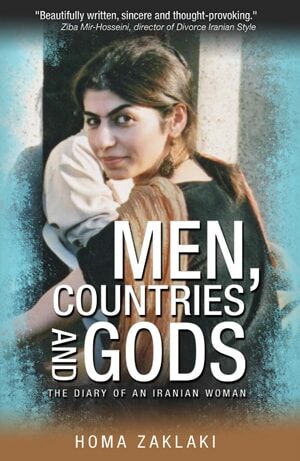
Friday, March 11, 2005
My great-grandmother is said to have been a gracious and elegant woman, wearing frock coats and fur hats. Her daughter, Naneh Homa, on the other hand, chose the veil at a time when it was banned under Reza Shah. Only at nights could she leave home, sneaking from rooftop to rooftop to hammam for her weekly bath. Next came Maman who, unlike her older sisters, paraded about in miniskirts and danced the cha-cha until she caught the attention of Baba, a man fifteen years her senior. After having snubbed promising proposals from educated and wealthy men in order to complete her high school, Baba’s scrawny appearance alongside his tireless persistence persuaded her.
“Out of sympathy I married him,” Maman said – a point she was always keen to underscore to women admiring her beauty in parties in Tehran, to new friends on walks in Vienna, or to Baba’s friends who complimented him on his perfect wife.
Probably the only trait Maman and Naneh Homa had in common was their voice. When we were children, Naneh would visit us weekly, bringing me pofak namaki – cheesy puffs – and playing with me while Maman was washing, cleaning and cooking.
“You work all the time. Lay aside what you are doing. Come and sing me something,” Naneh would request. If we were lucky, Maman would sit with us and chant Naneh’s – and now my – favourite Azari song.
“…In the street I have sprinkled water
There shall be no dust when my lover comes.”
Maman’s eyes would shimmer with tears; she would swing her hands and body and continue in a voice as intensely sad as the dusk:
“He shall come and go in such a way
That there shall be no clash between us…
In the samovar I have put fire
In the saucer I have placed a sugar cube…”
Tuesday, June 28, 2005
“How long are you going to stay here?” The midwife kept going.
I resisted the impulse to tell her that I didn’t have anywhere else to go, that London was as good a home as I would ever get, and instead said, “Don’t know.”
Her question haunted me for hours on end. Irrespective of how innocent or well-intentioned a question like this is, it prods you out of your amnesia. You tend, during a busy day immersed in routines and practicalities of work, to forget ‘who’ you are, or at least the ‘who’ you are being perceived as. I am just a doctor like any other, doing doctor stuff. But the question sets you on a vicious cycle of doubt. It spurs a sense of insecurity, and with that a series of other ‘whats’ and ‘whys’ of life. After all, this is not your home, and – hideous as it sounds – if your presence is not a necessity, then maybe you are not a necessity. Your very existence in the world comes under scrutiny. With roots in nothing solid, I could as well float and dissipate.
This never-ending otherness, always being the other to someone else’s ‘I’: as a woman and as a foreigner you are always the other to some strong autonomous presence that rules your little existence, tolerates your co-existence under this or that condition, but never fully permits your presence.
Wednesday, March 15, 2006
We rode against a backdrop of clear, starry sky, a shimmering full moon and a cool breeze that kissed my face…or so I wished! It is Bangladesh, as the locals keep saying. There was smog, the stench of gasoline, a throng of people and vehicles mixed with dissonant honking and whirring noises – an ordinary weekend night. Our ride followed in the expected fits and starts. Nonetheless I relished every second the bike was moving, and along with it the rush of air.
People were staring at me. Once, at yet another imposed halt, three boys huddled on a neighbouring bike hollered some excited words in Bengali and took a picture of me.
“You are sitting on the bike like me,” Belal said. “Not like a Bangladeshi woman.”
I was sitting astride the motorbike. I looked at the other women. They had their legs firmly closed on one side. However, like them I too had my arms tightly wrapped around the rider.
There was something erotic in the texture of Dhaka’s streets tonight. The swarm of bodies and the myriad of gazes, the anonymity and invisibility in the multitude as well as the reckless invasion of one’s physical space, evoke a sense of panic and intimacy in equal measure – an intimacy that by the very nature of its imposition was charged with a sensual and intoxicating energy. One’s ego dissolves into the crowd, into the darkness and into the heat – it evaporates into here, there and everywhere.
Kindle edition and paperback available on Amazon

